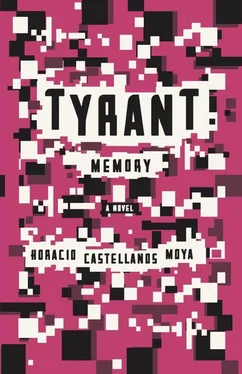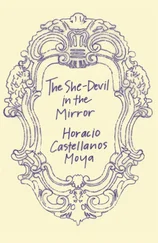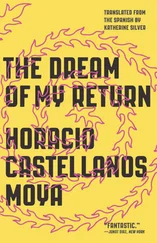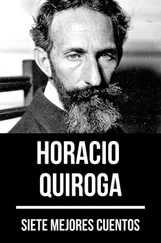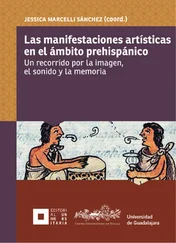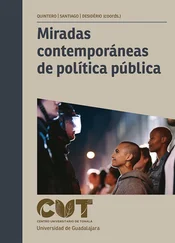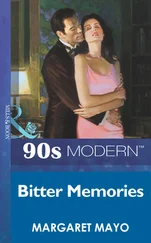But what really bothered Carmela was that sometimes Ricardito arrived in the company of gorgeous young women who called me “maestro,” praised my work to the heavens, and asked me why I didn’t teach, how much they would love to take classes from me. She was made particularly uneasy by a rather bold, skinny, curly-haired blonde; her name was Andrea, and she frequently and fervently exclaimed how much she wanted to be my model.
It was 1927 when I had my first show — some oil paintings I was quite proud of at the time — and Old Man Pericles had quit law school and plunged headlong into journalism and politics. I visited him at the newspaper office where he worked; he’d written an article in which he spoke quite generously about my show. One year later, when I had the nerve to send some verses I’d been working on for publication, I again visited him at the newspaper; Old Man Pericles leafed through the chapbook and, totally serious, asked me if I really thought I could be a painter and a poet at the same time. I said yes.
“Is your wound that large?” he asked.
I didn’t understand.
“I mean, painting should be enough for you,” he said with that sarcastic frown I would always recognize from then on.
Then he told me he couldn’t understand how the muse of poetry, so insolent and depraved, could pick a guy like me — sober, a devoted husband, not given to excesses of any kind — that there must have been a mistake somewhere because no lasting art can come from politeness and a good heart.
I didn’t know what to say.
The following week he published a short article in which he welcomed a new poet who was already a painter, but he didn’t say a word about the quality of my verses. The clarity of my recollection is proof of the slight I felt to my self-esteem.
Then came that fateful coup d’état in December 1931: suddenly Old Man Pericles became — probably through the intrigues of his ex-comrades-in-arms and his father, Colonel Aragón — the private secretary to the new president, a general with a warlock complex who would rule over us for twelve years. I stopped seeing him during this period; the exercise of power always isolates men, and Old Man Pericles was no exception. But I heard about his adventures through Carmela, who continued to see Haydée as frequently as ever.
Barely a month after the coup, the peasant insurrection began, led by the communists. There was total chaos. We felt uneasy in San Salvador, but the situation in the western sector of the country was much more dire. When the indigenous hordes armed themselves with guns and machetes, my in-laws were at their finca in Apaneca; they managed to escape by the skin of their teeth and arrived, terrified, in San Salvador. The government’s response was strong. There was a massacre, and the leaders were executed.
I’ve never known the passion for power, but I have read about it and thus am not surprised that Old Man Pericles lived those weeks of the insurrection with great intensity, awash in adrenaline and with enough vehemence to crush his enemies. I imagined him whispering in the general’s ear, drawing up plans, displaying his brilliance. He had been educated at a military academy, but he’d also attended law school, where he had shared classrooms and perhaps even adventures with some of the communist leaders, whom he was now fighting, and whom he would soon defeat.
The insurrection was a disaster; its chief military leader — Negro Martí, a former law-school classmate of Old Man Pericles — was captured almost at the outset. He was court-martialed and sentenced to be executed by firing squad. The night before his execution, the old man went to the prison with a box of cigars, shut himself up with Negro Martí and his two deputies — who were also sentenced to death — and they remained there talking and smoking until the dawn. At five in the morning he accompanied Martí to the wall of the General Cemetery. It was the first of February 1932. That’s when his life changed.
Old Man Pericles wasn’t one to make confessions and give detailed accounts, and I never met Martí, but I can picture the scene as if I had been right there, several yards away from the site of the execution, sitting on the grave of a stranger, my sketchbook resting on my lap, trying to capture every last detail under the blue-gray light of dawn, when there appears a rather small, thin man with dark skin, a mustache, a receding hairline, the little hair he has left curly and tangled, his hands in manacles, flanked by a priest and the commanding officer of the firing squad, surrounded by guards, his step firm and determined, with a proud bearing, conscious that he had the central role in this scene and was, thus, the one who set the tone and the rhythm. Old Man Pericles is walking to the side, silently; the priest holds forth, invoking God and gesticulating affectedly. With a disdainful look on his face, the condemned man says no, no he is not going to confess, would the priest please leave. The priest insists, stubbornly, obsequiously. The commanding officer and Old Man Pericles exchange looks. It’s time, the officer says gravely, and he removes the manacles. The old man approaches the condemned man and embraces him tightly, his nerves and muscles clenched; they exchange no word, only a glint in the eyes. The commanding officer takes out a handkerchief to blindfold the prisoner, who says he doesn’t need a blindfold, they should proceed without. The priest relents and, still muttering his mumbo-jumbo, he embraces the condemned man, who responds coldly. The old man starts to walk away, eager to gain some distance; when he gets alongside the firing squad he hears the voice of the condemned man shouting: “Pericles!” The old man turns around. “Come here, give me a hug,” he says. “But I already did,” the old man answers, discomfited. “Come, give me another one, I don’t want the last hug in this life to be from a scheming priest,” the condemned man says. The sky lightens. Pericles retraces his steps. They embrace again; the condemned man uses the opportunity to whisper in his ear: “You are going to be one of us.” The old man walks away, bewildered, his head down, his back to the scene; he pauses briefly to light a cigarette. The condemned man stands and faces the firing squad, his chest out, defiant. The officer shouts: “Ready!” He orders them to prepare their weapons. Then, the condemned man’s voice rings out forcefully: “Aim!” The officer suffers a moment of confusion but right away lifts his whip and energetically nods to the squad to carry out the condemned man’s order. At which point the condemned man shouts: “Fire!” The officer swings the whip through the air and the shots ring out. The condemned man has slumped over. All present hold still and silent amid the curls of smoke. Breathing heavily and clearly agitated, the officer approaches the body, still in its death spasms; he draws his forty-five, brings it to the condemned man’s temple, and shoots. A car’s engine has started nearby.
I repeat: Old Man Pericles wasn’t one for details — he never told anybody what he talked to Martí about during the more than five hours they spent in that prison cell awaiting the execution, smoking cigars, anticipating the moment he would lead Martí to the wall. And I could imagine that scene, innocent and heroic, thanks to the many times I’d read and heard about similar ones, but I could never paint it as I wished because I was somehow permanently incapacitated, and I could never do anything more than draw half a dozen sketches, nothing presentable, especially not to the old man, who would have turned to look at me without a stitch of compassion, raised his eyebrows, and asked me since when I thought of myself as Señor Goya of the Candelaria district.
Carmela called out from the kitchen to tell me that Old Man Pericles would arrive any minute now, and I should get out the ice cubes in case he wanted a whiskey. I told her not to be so pushy, I would take care of it. I stood up; pain shot through my spine. I walked over to the cupboard — very carefully, afraid of exacerbating the pain — to make sure there was enough whiskey left in the bottle; then I placed an ashtray on the dining room table and another on the coffee table out on the terrace. I told Carmela there was no point in taking out the ice until we heard the bus arrive, otherwise it would melt. Carmela asked me to help her set the table. At that moment we heard the clatter of the bus on the street below.
Читать дальше
